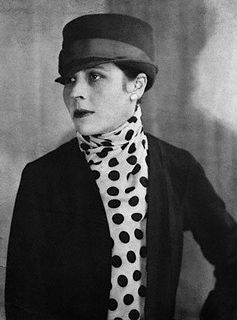A Quote by Carl Jung
We carry our past with us, to wit, the primitive and inferior man with his desires and emotions, and it is only with an enormous effort that we can detach ourselves from this burden. If it comes to a neurosis, we invariably have to deal with a considerably intensified shadow.
Related Quotes
We can carry the burden of hurt throughout our lives. We can make the hurt that we have experienced the defining aspect of our stories of ourselves. That means that somebody else gets to say who we are, somebody else gets to decide how we feel, and somebody else gets to decide how we see the world. Forgiveness not only frees us from the burden of someone else's opinion of us, but it allows us the opportunity to really write a story of ourselves that we can love, enjoy, relish, and live into.
Though our brother is upon the rack, as long as we ourselves are at ease, our senses will never inform us of what he suffers. They never did and never can carry us beyond our own persons, and it is by the imagination only that we form any conception of what are his sensations...His agonies, when they are thus brought home to ourselves, when we have this adopted and made them our own, begin at last to affect us, and we then tremble and shudder at the thought of what he feels.
I compare the troubles which we have to undergo in the course of the year to a great bundle of sticks, far too large for us to lift. But God does not require us to carry the whole at once. He mercifully unties the bundle, and gives us first one stick, which we are to carry today, and then another, which we are to carry tomorrow, and so on. This we might easily manage, if we would only take the burden appointed for us each day; but we choose to increase our troubles by carrying yesterday's stick over again today, and adding tomorrow's burden to our load, before we are required to bear it.
It is the same for all men. None of us can escape this shadow of the father, even if that shadow fills us with fear, even if it has no name or face. To be worthy of that man, to prove something to that man, to exorcise the memory of that man from every corner of our life--however it affects us, the shadow of that man cannot be denied.
The Toltec tradition tells us that we surrender a portion of our life force when we dwell on any unhealed wounding event from our past. The unprocessed emotions surrounding these events burden us and weigh heavily on our hearts. They must be dealt with if we want access to all of our vitality. Ultimately, what we will find is that forgiveness is the key to reclaiming all the life force locked in past hurt.
Hope is like the sun, which, as we journey towards it, casts the shadow of our burden behind us. ...Hope sweetens the memory of experiences well loved. It tempers our troubles to our growth and our strength. It befriends us in the dark hours, excites us in bright ones. It lends promise to the future and purpose to the past. It turns discouragement to determination. Samuel Smiles
In trying to express only those aspects of ourselves that we believe will guarantee us the acceptance of others, we suppress some of our most valuable and interesting features and sentence ourselves to a life of reenacting the same outworn scripts. Reclaiming the parts of ourselves that we have relegated to the shadow is the most reliable path to actualizing all of our human potential. Once befriended, our shadow becomes a divine map that—when properly read and followed—reconnects us to the life we were meant to live and the people we were meant to be.
What is it that strikes a spark of humor from a man? It is the effort to throw off, to fight back the burden of grief that is laid on each one of us. In youth we don't feel it, but as we grow to manhood we find the burden on our shoulders. Humor? It is nature's effort to harmonize conditions. The further the pendulum swings out over woe the further it is bound to swing back over mirth.
Without books we should very likely be a still-primitive people living in the shadow of traditions that faded with years until only a blur remained, and different memories would remember the past in different ways. A parent or a teacher has only his lifetime; a good book can teach forever.Without books we should very likely be a still-primitive people living in the shadow of traditions that faded with years until only a blur remained, and different memories would remember the past in different ways. A parent or a teacher has only his lifetime; a good book can teach forever.


































